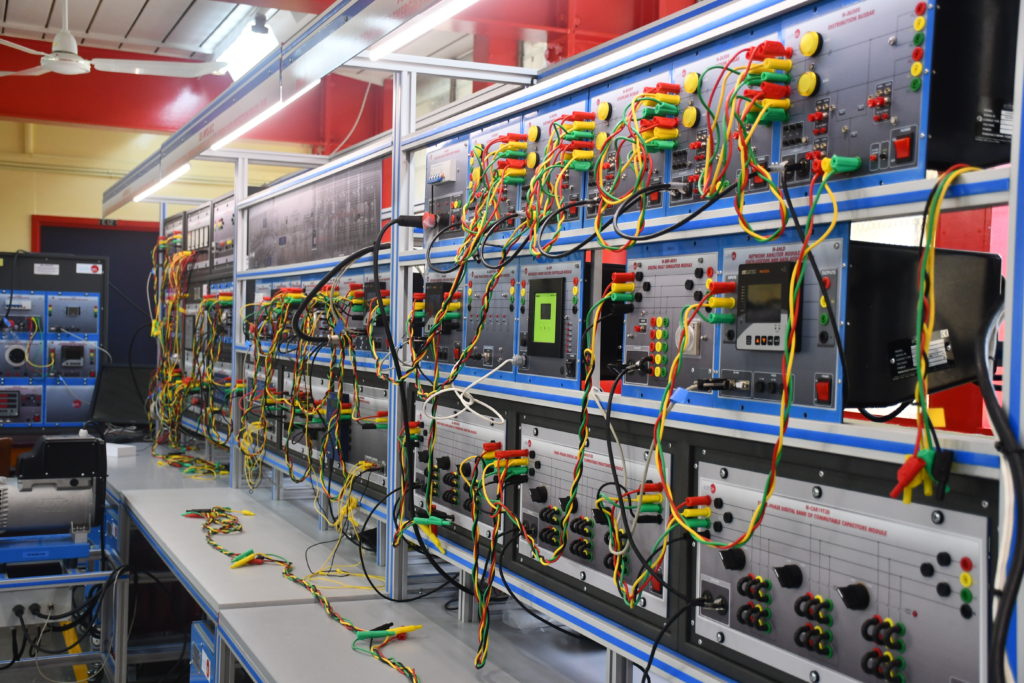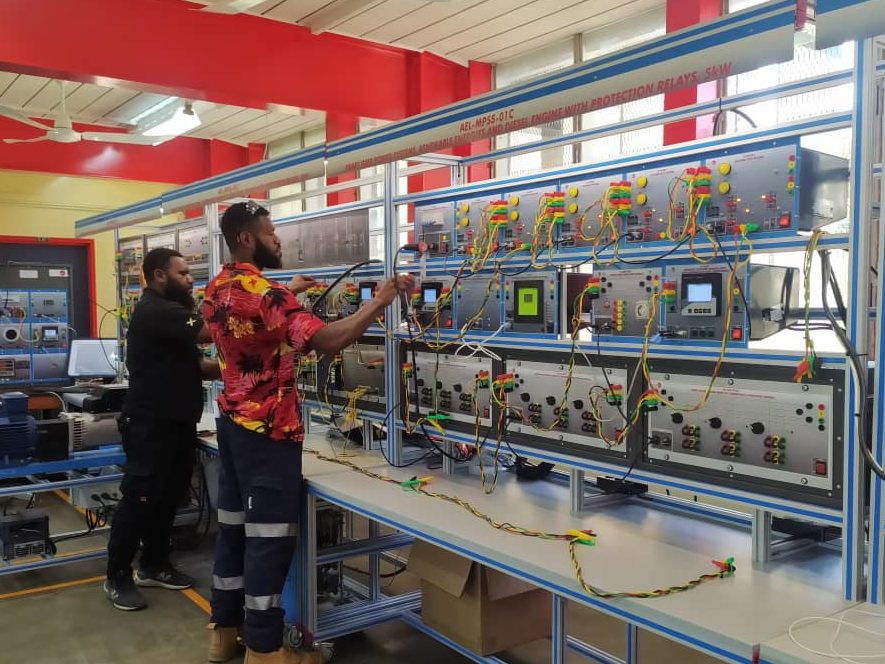ELECTRICAL COMMUNICATIONS ENGINNEERING STUDENTS USE STATE-OF-THE-ART SMART GRID EQUIPMENT
By Lucy KOPANA
Learning for students at the Papua New Guinea University of Technology’s School of Electrical and Communications Engineering was enhanced this year, with the use of a state-of-the-art smart grid.

Deputy Head of the School of Electrical & Communications Engineering, Mr. Gibson Kupale, who is also from the Power Section, said this equipment enabled students to have hands-on practical lessons and training, which had been missing in the past.
“Our students were without any hands-on practical experience for quite some time, only resorting to simulations, and this will be a great opportunity to actually feel, touch, and see how grid systems operate.”
The state-of-the-art smart grid is considered the future of electricity grids. It has been implemented in developed countries and is slowly making advances into developing countries like Papua New Guinea.
“To have the equipment for simulations ahead of its actual implementation is a huge plus for PNGUoT as a technological institution and places the School of Electrical Engineering and the university in their rightful place,” said Mr. Kupale.
The equipment consists of four sources: a conventional diesel generator, a synchronous generator to simulate hydro, steam, gas turbines, or others that use synchronous generators, a wind generation system, and a solar PV system.
It also includes transmission line simulation parameters, distribution substations with different busbars, actual industrial relays for protection, and different loads (resistive, capacitive, and inductive).
All these sources can be operated in standalone mode or connected together to form a grid.
A final year Communications Engineering student, Jeremiah Bulda said the inclusion of a state-of-the-art smart grid has enabled him to gain practical skills for the workforce, and is also encouraging innovation.
“You get to apply theoretical knowledge to real-world applications, enhancing your understanding of power distribution and renewable energy. Exposure to advanced technologies like IoT and automation prepares you for modern energy systems.”
“The experience also improves your problem-solving skills as you manage energy variability. Additionally, the interdisciplinary nature of smart grids allows for a broader understanding across various fields.”
Another student Issac David said he now feels more prepared to tackle challenges in the energy sector and contribute to future advancements in this field, because being able to learn using the smart-grid system has been insightful.

David said it is important for students to have these practical sessions because it encourages the application of theory, develops skills, builds confidence, and also teamwork and collaboration amongst other benefits of using the system.
“I applaud the school and university for taking these measures to improve learning facilities and equipment. These enhancements significantly enrich the educational experience and better prepare students for successful careers in the ever-evolving field of energy.”
The Smart Grid was commissioned in June, witnessed by senior staff from the Faculty of Engineering, and academic and technical staff from the School of Electrical and Communications Engineering.
The Dean of the Faculty of Engineering, Dr. Shoeb Amed Syed, said the smart grid was the most expensive equipment in all the engineering schools at the university, costing K1.2 million, and was funded with the support from Kumul Petreoleum Holdings Limited (KPHL). Dr Syed acknowledged the benefactors who helped the school acquire the equipment.
The Head of School, Dr. Joseph Fisher, expressed his appreciation for the engineers from Spain who assisted in setting up the equipment and training the school’s technical and academic staff. The trained academic staff includes Mr. Gibson Kupale, Dr. Sammy Aiau, Mr. Joshua Yuanko, Mr. Mathew Pua, and Mr. Wilson Kepa.
The trained technical staff includes Mr. Sylvester Nauot, Ms. Rani Maeoaka, Mr. Rion Hitchen, Ms. Loraine Merpe, Mr. Louis Kevin, and Ms. Rhonda Karato.
Dr. Fisher encouraged staff to use the equipment for research and projects, and to utilize it for the benefit of the students and the country.
